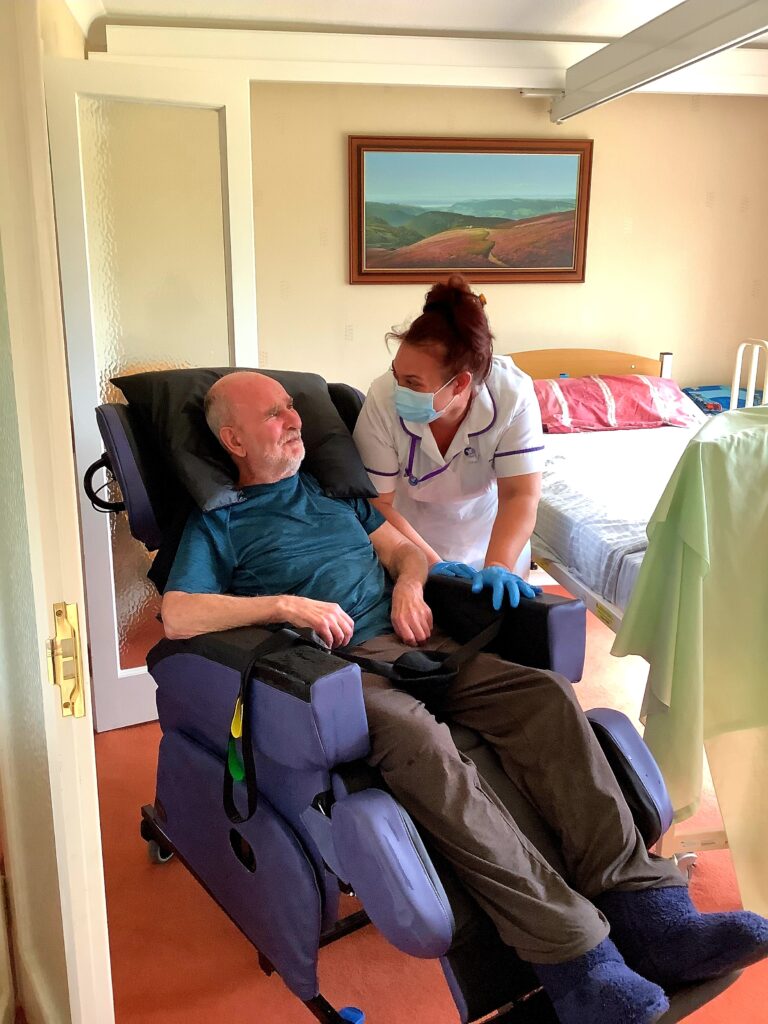Learn
Learning more about Parkinson’s Disease can help reduce stress for the carer and the patient, as being diagnosed can change someone’s entire life.
Research the symptoms, causes, treatments and read more on how Parkinson’s can affect family, friends, and the patient mentally and physically.
Go along to any medical examinations and appointments to help you learn more about the process and the methods to slow down the disease and how to maintain it. This will give you an insight into how medical professionals can control Parkinson’s – along with giving the patient and the friends and family members a piece of mind and reduce those overthinking and anxious thoughts.
Help Out & Normalise
From being able to move freely to then not be capable to use a computer or phone as easily as previously, it can be daunting and overwhelming. Helping those with Parkinson’s Disease is such a wonderful and supportive thing to do.
Encouraging more bonding time whilst giving your family member a chance to feel normal by doing daily household tasks. Keep their mind off it. It’s a big challenge to deal with, so helping to reduce the constant reminder of their condition can be destressing – so talk about other things! Play games and go and do something fun!
Be Active
Taking time to get out of the house can stimulate serotonin levels. Having physical activity can help to build strength, flexibility, balance, and coordination. Whether it’s through physical therapy or even taking a brisk walk, each activity can help to make the joists looser for more movement. If there is a specific area of your body that is suffering more than others, this can be a good idea to target the pain and reduce swelling or inflammation.
Having regular exercise, perhaps 2 and a half hours a week (just over 20 mins a day), will enable the patient to get the moderate amount of movement that it needs to keep fit and healthy. Meanwhile even sitting down, rotating the ankles, wrists and any joints that need particular attention can benefit from any movement – no matter the scale.
Listen
Anxiety and depression are very common in people who suffer from Parkinson’s Disease. Just being there for them to talk to, or a shoulder to cry on can mean so much. This is not an extra job, it’s being a friend and/or family member, what you would do any day of the week for someone who needed a helping hand or any advice. Be there to listen.
If you or a friend/family member is struggling, and you feel it’s more serious than anticipated, then you can always call Samaritans free on 116 123 to talk to someone 24/7.
Be Aware
Keep an eye out for any changes or developments in symptoms, moods, and/or movement. Note down anything that the medication may be helping to reduce, perhaps keep a daily diary of how the patient is getting on – this way you can keep up to date on their mental and physical health.
If any accidents should occur, then use our 24-hour care, ‘Out of Hours’ service and we can come out and assist with any falls, telephone checks, and reminders! We offer many different types of care that range from overnight care to live-in care – discover more on Our Services Page.
There will be subtle ways that their movement can change, so this may be a way to be organised and ready to provide any information when required.
Be Patient
Think of your loved one. Be patient with them and listen to any concerns or queries that they may have.
If you have any further questions or are struggling to cope with anything associated with Parkinson’s Disease, then please feel free to get in touch with a friendly member of our team. We understand how difficult it can be to respond to out-of-character physical and/or mental patterns caused by Parkinson’s Disease.
Also, feel free to read another one of our blogs or contact us on 02392 632393 for any more questions, advice, and how we can help you.


